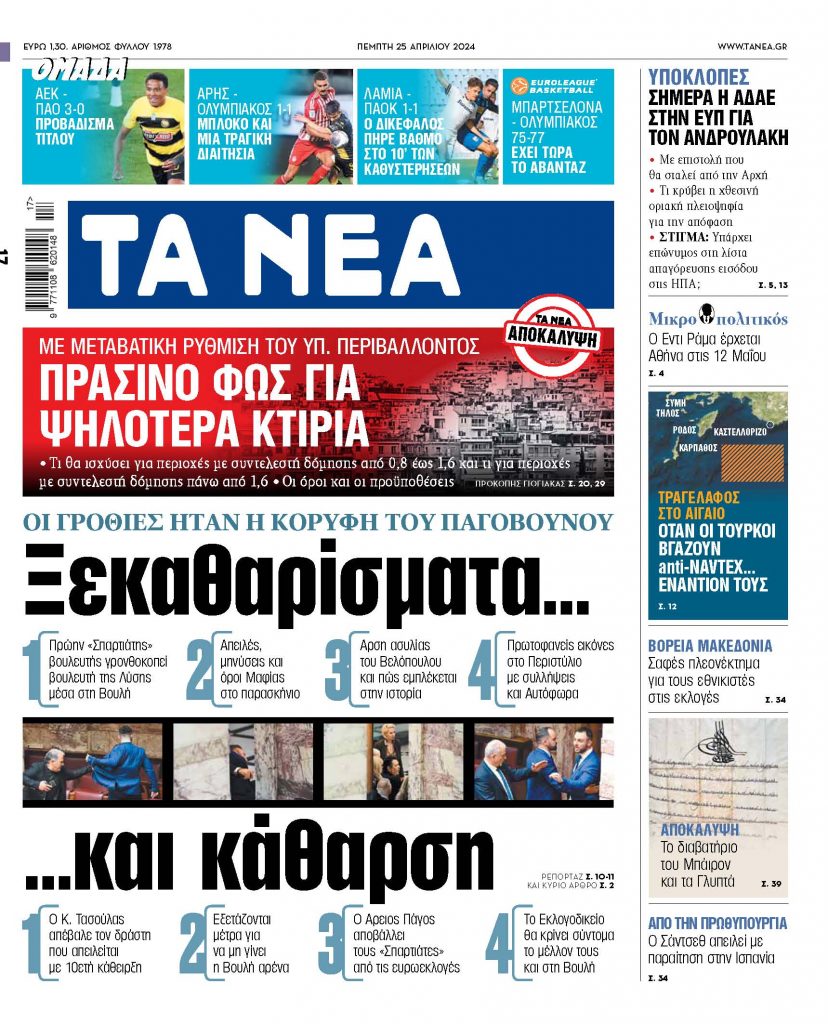Just speaking his name is enough to automatically link it with the Greek financial crisis of the previous decade, as Wolfgang Schaeuble played a pivotal role in the negotiations on Greece’s bailout programmes and EU support policies
It is also enough to trigger passions both in Greece and abroad.
Schaeuble reminds us of how our partners reacted to the Greek crisis, how much room was or was not exhausted in the efforts to prop up the economy, and the omissions and oversights on both sides.
The interview that Schaeuble granted to Ta Nea is timely, and not just because it comes right before Greece’s exit from the EU’s enhanced fiscal supervision mechanism next month.
It is also timely due to his observations on the role of various factors, and of Germany itself, in the European system of solidarity.
That is because no one can turn a blind eye to the ominous indications that have followed the Russian invasion of Ukraine.
The EU is already facing adverse conditions, in which the position of every member-state contributes to a common policy for confronting new threats.
In that framework, self-criticism, criticism in good faith, and above all the earnest and accurate recording of history, can provide guarantees of timely preparations for prospective eventualities.
Whenever the logic of cooperation, mutual assistance, and respect for the needs of member-states prevailed, a path was opened for the EU’s best possible performance.
On the other hand, when national policies prevailed at the expense of this supra-national construct, the EU lost precious time.
The EU mandates that everyone protect its value, especially at dark moments.
It has proven, both in the past and now, that after a major crisis it is in a position to make a great leap forward.

